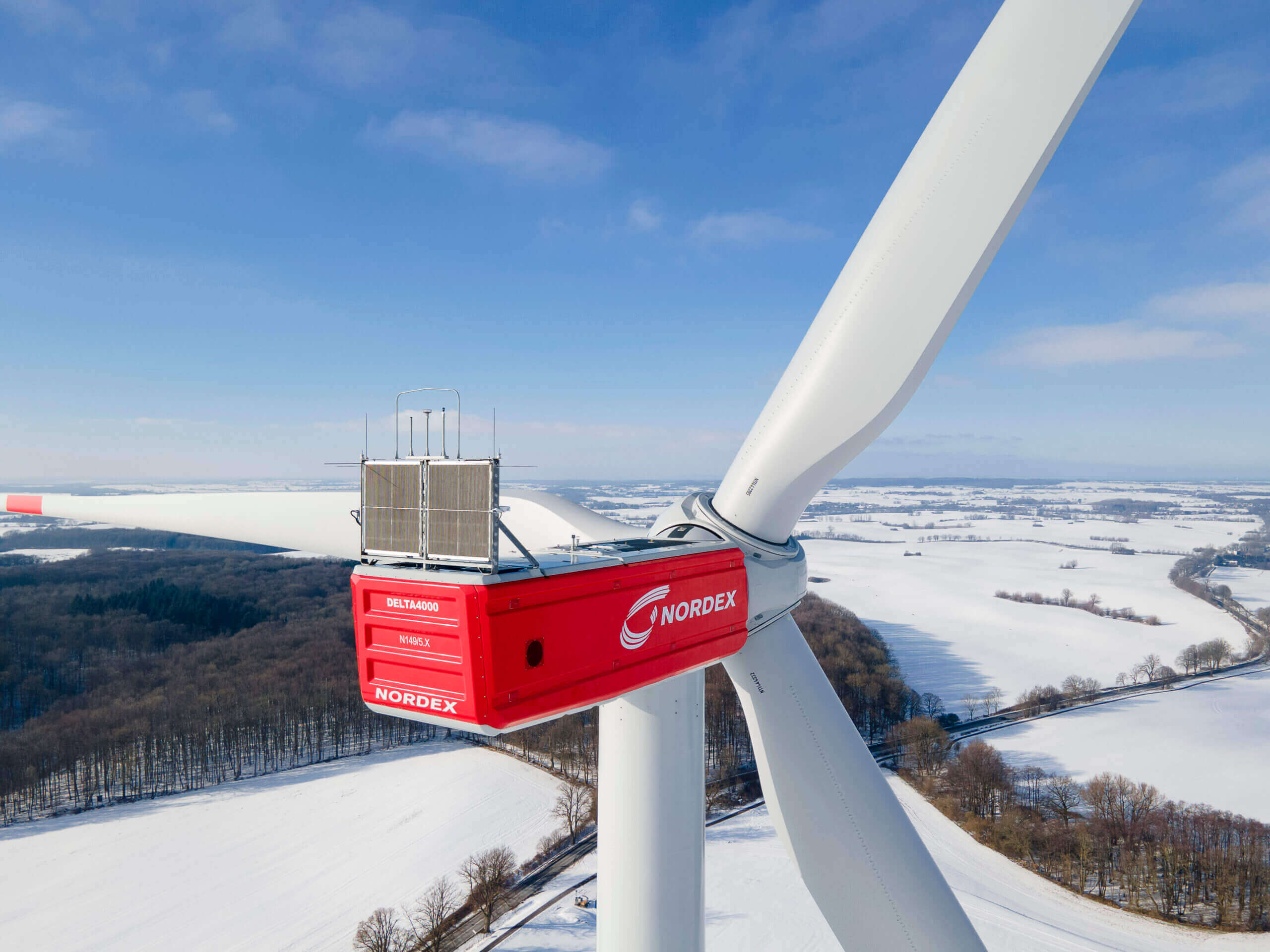November 28th, 2022 | 12:25 CET
Is this patent causing a rare earths quake? Nordex, Defense Metals, BYD
Wind power is a crucial component of the energy transition. Rare earths are used to increase the efficiency of wind turbines and electric motors. Dysprosium and terbium, in particular, are in demand. But although rare earths are anything but rare, they are only found in a few regions worldwide. Scientists at Darmstadt Technical University have now developed processes to use rare earths more efficiently. We explain the technology and shed light on three stocks related to rare earths.
time to read: 4 minutes
|
Author:
Nico Popp
ISIN:
NORDEX SE O.N. | DE000A0D6554 , DEFENSE METALS CORP. | CA2446331035 , BYD CO. LTD H YC 1 | CNE100000296
Table of contents:
Author
Nico Popp
At home in Southern Germany, the passionate stock exchange expert has been accompanying the capital markets for about twenty years. With a soft spot for smaller companies, he is constantly on the lookout for exciting investment stories.
Tag cloud
Shares cloud
Nordex: TU Darmstadt gives hope
Wind turbine manufacturer Nordex is well-positioned to benefit from the energy transition. But things could be better for the German wind power pioneer. Margins are lacking. Supply chains and logistics costs for the huge wind turbines are also getting out of hand. Compared to its competitors, such as the Danes from Vestas, Nordex has fallen behind. An innovation from Darmstadt Technical University would come in handy: researchers at the university have patented a manufacturing process that can significantly reduce the proportion of rare earths in permanent magnets. Specifically, such magnets are produced by grinding the rare earths and then "baking" them into a solid. At this point, the TU researchers combine various rare earth granules and concentrate them in the magnet in such a way that, in the end, efficiency increases. Ultimately, there are fewer rare earths in the volume that is less relevant for the function.
For companies like Nordex, the process would mean cost savings. But it will be a while before industrial companies can reap the fruits that the researchers have sown: The project, funded by the German Federal Ministry of Education and Research, will run until at least 2025. Involved in the project is not only the TU Darmstadt but also the Fraunhofer Institute. It is no wonder that Nordex's share price has yet to react to the research results so far - it will still take a little time before it is ready for the market. Nevertheless, the Nordex share has recovered recently. On December 7, investors can determine first-hand what the future holds when Nordex presents online and free of charge at the 5th International Investment Forum.
Defense Metals: Taking a big step
One company that caused a stir and provided insight during past editions of the investment conference is Defense Metals. The Canadians have one of North America's most promising rare earth projects. The Wicheeda project is 100% owned by Defense Metals and is located near Prince George in the Canadian District of British Columbia. Recently, the Company impressed with spectacular drill results: Among others, a 122-meter drill hole with 2.56% rare earth oxides caused a sensation. "Resource infill drilling in 2022 at the Wicheeda deposit continues to yield high-grade REE intercepts from surface with greater than 3% TREO. The drill results are doubly important as they represent the deepest exploration to date at the Wicheeda deposit, returning a broad intercept of mixed lithology at an average grade of nearly twice the minimum ore cut-off value of the Mineral Resources, and ending 50 m below the current pit shell. The fact that we continue to see potentially economic REE grades at this depth is extremely encouraging," commented Craig Taylor, CEO and Director of Defense Metals.
For companies developing resource projects, it is important that the geological fundamentals are indicative of future profitable production. High grades mean that less rock has to be moved to get the desired raw materials. For The Wicheeda Project, key data on the possible economic feasibility of the project are already available. Although these are of a preliminary nature, they are nevertheless convincing. Among other things, Wicheeda impresses with a project value (NPV) of CAD 761 million and an internal rate of return of 22%. Operating margins were estimated at over 60% in the initial review. Investors looking to gain exposure to rare earths and appreciate Defense Metals' geopolitically secure location in Canada may want to take a closer look at the stock - the market cap is currently around CAD 40 million.
BYD: Uncertainty despite security of supply
Rare earths are relevant not only for generators of wind turbines but also in motors for e-cars. In addition, they are used in electronics - touch screens cannot do without the elements either. While carmakers from Europe have to worry about their security of supply, BYD has been able to sit back and relax. The central government in Beijing has been securing the most important raw materials for China's economy for many years, thus guaranteeing growth. But this power of China, coupled with geopolitical tensions, is causing a backlash from the West: While North America and Europe are becoming increasingly independent of China and Russia, the risk of trade barriers is also growing. It is not a foregone conclusion that China will be able to export to Western industrialized countries so easily in the future. BYD has just expanded into Europe and is offering its electric cars there. The models are technically convincing, but they are by no means available at a bargain price. Whether BYD will be successful in Europe and other new markets is not a foregone conclusion. The share has lost around 37% of its value in the past year.

While BYD's stock tends to encourage investors to wait on the sidelines, Nordex's share price performance is already showing slightly positive signals. The presentation on December 7 at the International Investment Forum may point the way forward for investors. It is very likely that the path to a sustainable future can only be taken with rare earths from safe regions - regardless of the latest research results. Stocks like Defense Metals, therefore, remain exciting. As soon as risks are rewarded again on the markets, developers of raw material projects with a future could take off.
Conflict of interest
Pursuant to §85 of the German Securities Trading Act (WpHG), we point out that Apaton Finance GmbH as well as partners, authors or employees of Apaton Finance GmbH (hereinafter referred to as "Relevant Persons") currently hold or hold shares or other financial instruments of the aforementioned companies and speculate on their price developments. In this respect, they intend to sell or acquire shares or other financial instruments of the companies (hereinafter each referred to as a "Transaction"). Transactions may thereby influence the respective price of the shares or other financial instruments of the Company.
In this respect, there is a concrete conflict of interest in the reporting on the companies.
In addition, Apaton Finance GmbH is active in the context of the preparation and publication of the reporting in paid contractual relationships.
For this reason, there is also a concrete conflict of interest.
The above information on existing conflicts of interest applies to all types and forms of publication used by Apaton Finance GmbH for publications on companies.
Risk notice
Apaton Finance GmbH offers editors, agencies and companies the opportunity to publish commentaries, interviews, summaries, news and the like on news.financial. These contents are exclusively for the information of the readers and do not represent any call to action or recommendations, neither explicitly nor implicitly they are to be understood as an assurance of possible price developments. The contents do not replace individual expert investment advice and do not constitute an offer to sell the discussed share(s) or other financial instruments, nor an invitation to buy or sell such.
The content is expressly not a financial analysis, but a journalistic or advertising text. Readers or users who make investment decisions or carry out transactions on the basis of the information provided here do so entirely at their own risk. No contractual relationship is established between Apaton Finance GmbH and its readers or the users of its offers, as our information only refers to the company and not to the investment decision of the reader or user.
The acquisition of financial instruments involves high risks, which can lead to the total loss of the invested capital. The information published by Apaton Finance GmbH and its authors is based on careful research. Nevertheless, no liability is assumed for financial losses or a content-related guarantee for the topicality, correctness, appropriateness and completeness of the content provided here. Please also note our Terms of use.




